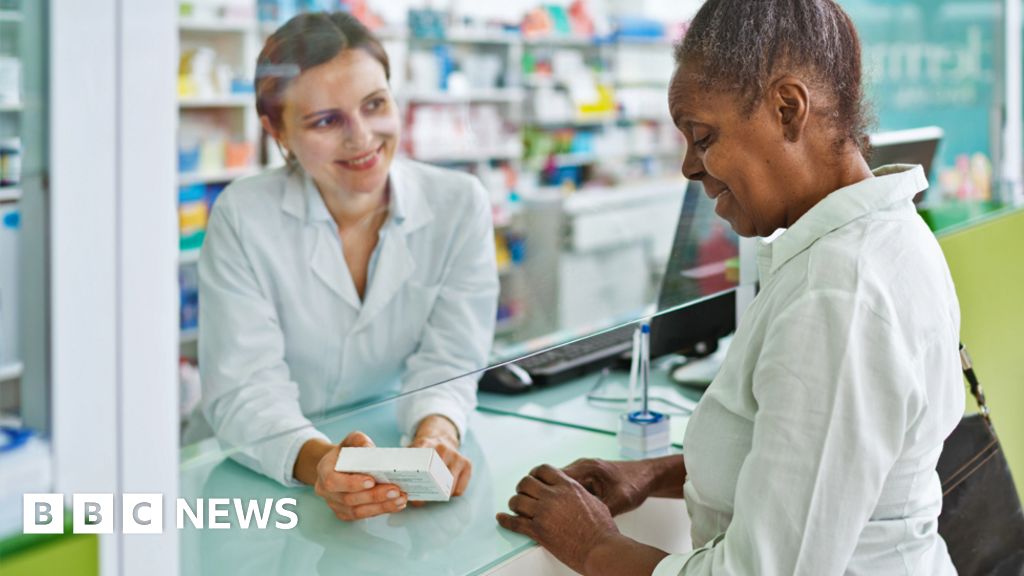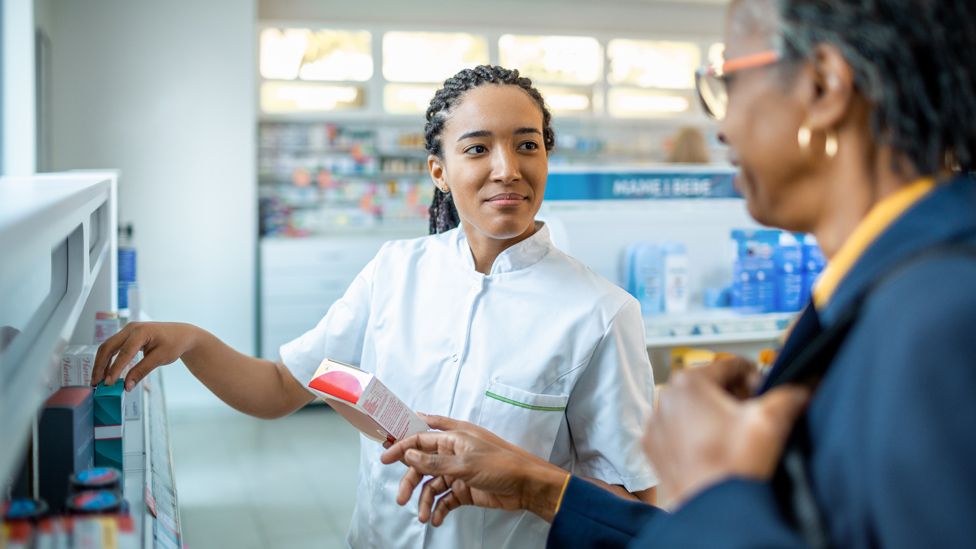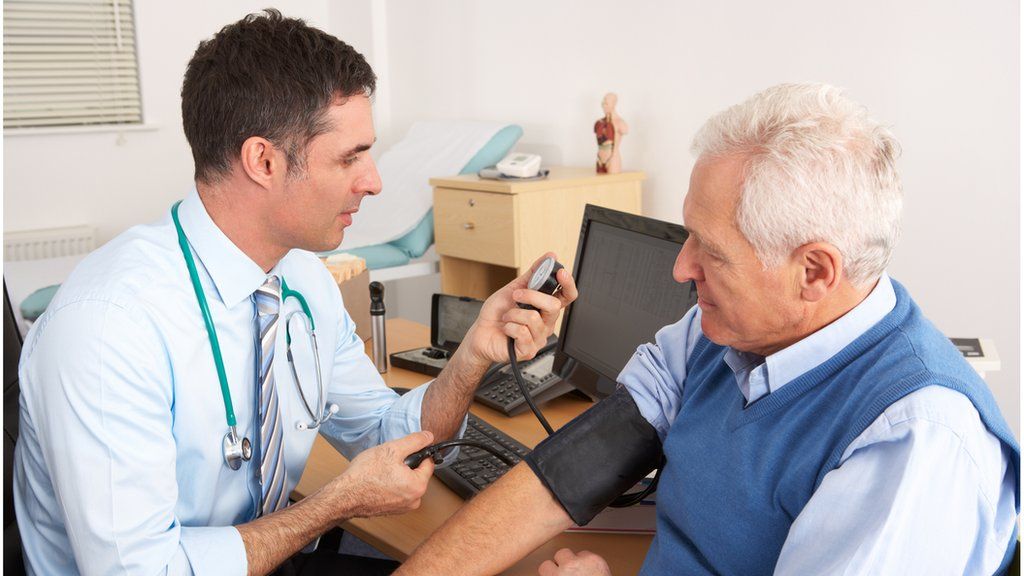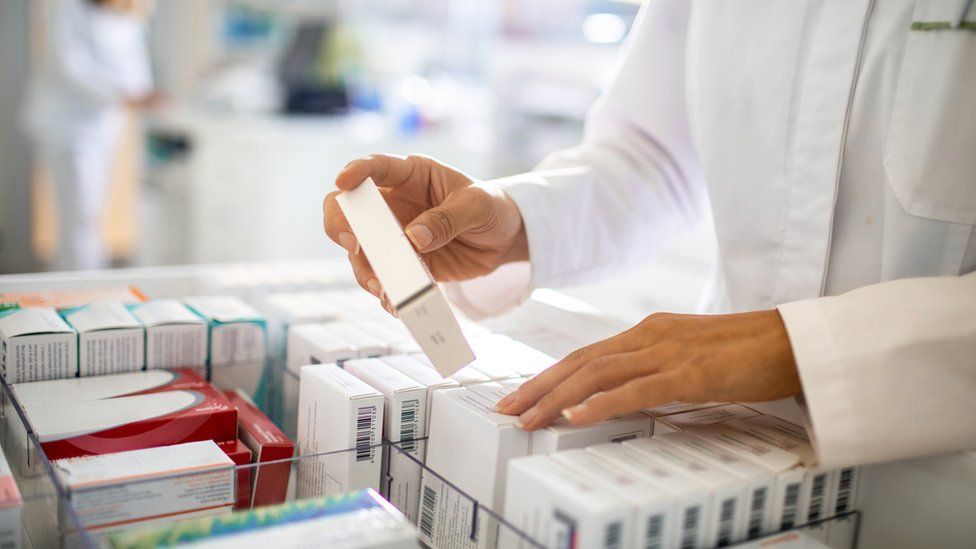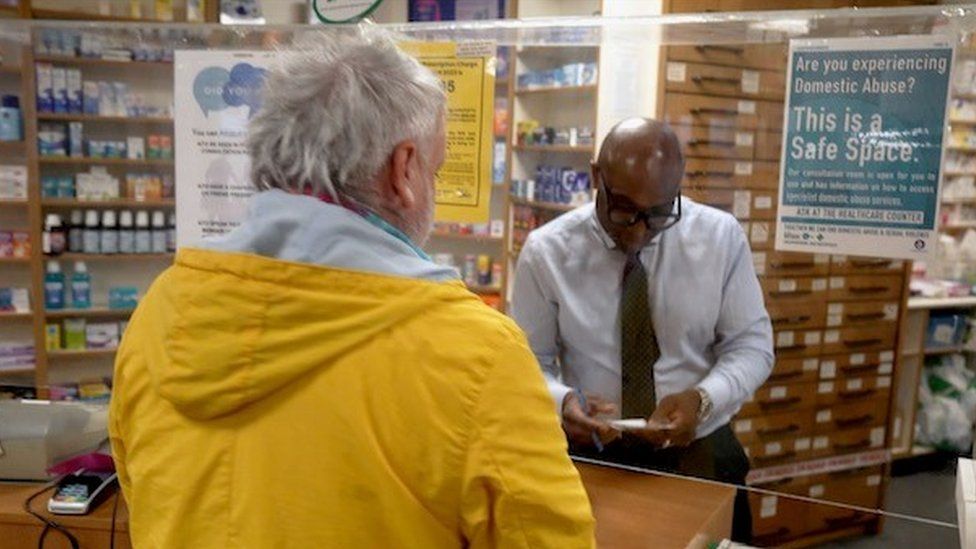
Treatments for seven conditions such as sore throats and earaches are now available directly from pharmacists, without the need to visit a doctor.
The Pharmacy First scheme will allow most chemists in England to issue prescriptions to patients without appointments or referrals.
NHS England says it will free up around 10 million GP appointments a year.
Pharmacy groups welcome the move but there is concern about funding and recent chemist closures.
Pharmacists can carry out confidential consultations and advise whether any treatment, including antibiotics, are needed for the list of seven minor ailments.
Patients needing more specialist or follow-up care will be referred onwards.
What can pharmacists prescribe medicines for now?
- sore throat
- earache
- sinusitis
- impetigo
- shingles
- infected insect bites
- uncomplicated urinary tract infections in women
Patients can access the new service by walking straight into a chemist or being referred by NHS 111, urgent treatment centres, emergency departments or their GP. Those who are not registered with a GP can still access the service.
Pharmacies already offer advice on medicines – when to take it, information on side-effects and how to dispose of it.
You can also get emergency contraception and blood pressure checks at most pharmacies in England. Some offer advice on how to stop smoking, how to lose weight as well as screening and treatment for chlamydia, a common sexually-transmitted infection.
What happens at a consultation?
The pharmacist will ask about symptoms and possibly about any previous medical issues. They may ask for consent to check the patient’s health record if they can access it.
For some conditions, the pharmacist may perform an examination – for example of a patient’s ear.
This allows them to recommend the best course of action for each patient, which could include a treatment bought over the counter such as a cream or ointment, a restricted set of prescription-only medicines or advice that the issue will go away on its own.
The consultation will be noted and shared with GPs to add to the patient’s record.
‘More choice’
More than 90% of community chemists had registered to deliver the new service, NHS England said.
They have been paid £2,000 each and will receive £15 per consultation plus £1,000 a month if they see a set minimum number of patients.
Similar services are already offered in Scotland, Wales and Northern Ireland.
NHS England’s chief executive Amanda Pritchard called it “great news for patients”.
“GPs are already treating millions more people every month than before the pandemic – but with an ageing population and growing demand, we know the NHS needs to give people more choice and make accessing care as easy as possible,” she said.
The Royal Pharmaceutical Society called it a “leap forward” in patient care.
Working parents
Ade Williams, who trialled the scheme at Bedminster Pharmacy, in Bristol, told BBC News: “One of the frustrations you have as a pharmacist is that you have patients coming in and then you want to help them – but then you are then not able to. It’s a really big deal for us.
“You feel a greater sense of satisfaction and it’s lovely when the patient comes back and says, ‘I am better now – that worked.'”
Ali McKerrow, whose young son was prescribed an impetigo cream at the pharmacy, says the scheme will help working parents.
“It can be really challenging getting a GP appointment,” she said.
“I am about to do the school run and just popped in here on the way – that’s infinitely easier than staying on the phone on hold.”
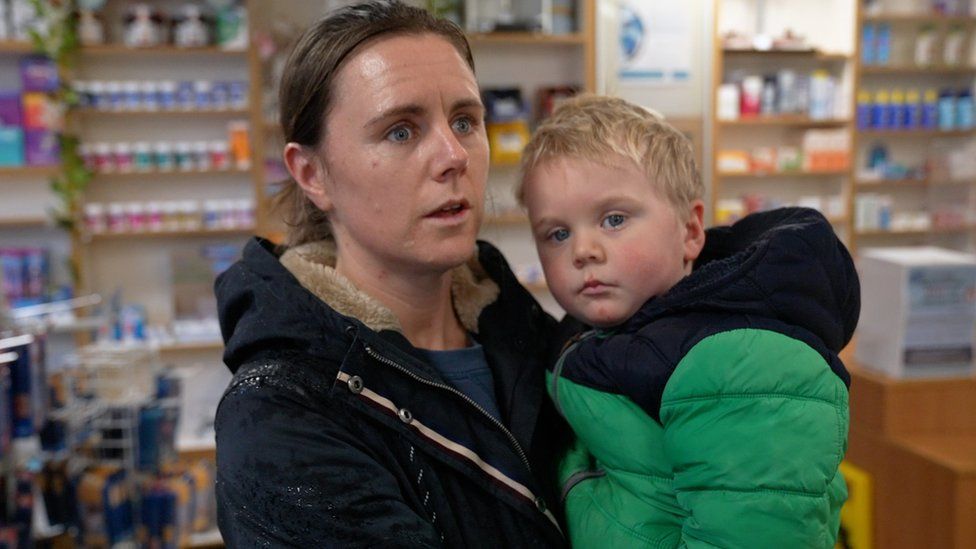
Nearly half the pharmacies in England have also recently started prescribing the oral contraceptive pill.
They will also increase the number of blood-pressure checks.
But there are concerns about pharmacy closures.
Last year, BBC News analysis showed the number of chemists in England had fallen to its lowest level since 2015.
And the Association of Independent Multiple Pharmacies has warned community pharmacies in England are “severely underfunded”.
Chief executive Dr Leyla Hannbeck welcomed the scheme but said that without greater funding, “more pharmacies will shut their doors for good and more workload will be transferred to remaining pharmacies”.
NHS England said £645m was being invested over two years in expanding services offered by community pharmacies.

Are you struggling to get a GP appointment? Get in touch.
- Email haveyoursay@bbc.co.uk
- WhatsApp: +44 7756 165803
- Tweet: @BBC_HaveYourSay
- Upload your pictures or video
- Please read our terms & conditions and privacy policy

Related Topics
-
-
16 November 2023

-
